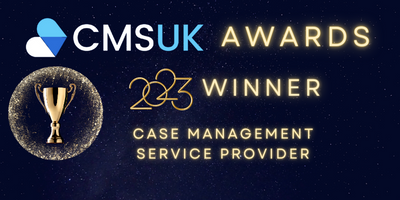Why psychology is crucial in case management, and case management is crucial in psychology treatment with Personal Injury clients
In the almost 10 years that I have been running a neuropsychotherapy service, which later developed a case management branch, I have realised that there is more value in seeing the two services as overlapping than as two separate entities. And since psychology is not a common skillset for case managers, and case management is not something all psychologists in private practice fully understand, I thought I would explain myself a little bit.
Psychology-informed Case Management
I don’t think it’s inaccurate to say that the majority of our personal injury clients and their families have experienced significant trauma, loss and disruption, leaving them distressed and frightened about every aspect of their life. Once a case manager is instructed, they will inevitably be met at that first meeting with the understandable and natural heightened emotional reaction to the significant life event that may have almost destroyed the client and their family, the very reason why the case manager has come to their home.
A lot of psychological research has been conducted into supporting clients who have experienced trauma. That research is clear about one thing perhaps more than anything: the client-therapist relationship will determine the success of the outcomes more than any other factor. This therapeutic alliance is the most important aspect in the beginning stages of a client’s/family’s case management process. And I firmly believe that case managers need to be trauma-informed in order to develop the strongest possible therapeutic alliance with any catastrophically injured client/family, and truly support the medico-legal process.
A trauma-informed case management approach is one where the case manager is constantly creating an environment that ensures emotional safety, stability, appropriate boundaries, and empowerment. It also takes into consideration the client’s attachment needs because these attachments will play out with others, from family members to therapists on the treatment teams, to care teams, solicitors and case managers themselves. The cognitive distortions that can develop as a result of trauma — to make sense of what has happened — can hinder the progress of rehabilitation and litigation. In particular, challenges to the following five areas can occur with trauma: Safety, Trust/Dependency, Esteem, Connection, and Power/Control. The disrupted beliefs that clients/family will present with in the case management space need to be acknowledged and addressed. This may not come easily to a non-psychology-trained case manager and therefore the risk of disrupting the therapeutic alliance means that the rehabilitation progress may also be at risk. Therefore, one could argue that the value of having a case manager who is psychologically informed adds significant worth to the aims of the entire litigation process.
Case management-informed Psychology
As once a psychologist in private practice to clients in the general population, working in the personal injury world was a real eye-opener. I was able to learn the ropes relatively easily, thanks to my case management work, but it became clear quickly that working in private practice is not the same as working in medico-legal private practice. First and foremost, clinicians need to understand that the client is part of a system greater than their family and rehabilitation support, and that the entire process is guided by the medico-legal dealings. This cannot be underestimated, because their input will need to be adapted to inform litigation strategies and funding positions. A typical psychologist would not have had any training or exposure to this treatment context. While the clinical input might be undisputed, the expectations around the aim of the role, the liaison required with a case manager, communication, report-writing with the injury context in mind, understanding the full scope of the work possible, charging for the input correctly, managing availability to attend professional meetings or to offer training to care teams etc. could impact the value of the psychological treatment element of the claim.
There are some excellent psychologist clinicians in the private sector and I would not hesitate to recommend some of them. However, since working as a Director of a psychology service solely for personal injury clients in which we induct, train and supervise our Associates into the medico-legal setting, I have realised that not all psychologists can work in litigation and this is a reality we have to accept if we are to work for our clients’ best interests.
I hope I have made a decent case for why I think psychological skills are crucial in personal injury, whether in case management to ensure skilled containment of trauma and distress of a client/family, or whether to demonstrate added value with medico-legal psychologists.
I am passionate about being both a Clinical Psychologist and Case Manager, and I am equally passionate about running a service of two halves that provides skilled support for our clients while also ensuring the reason we are all involved — to enhance rehabilitation




